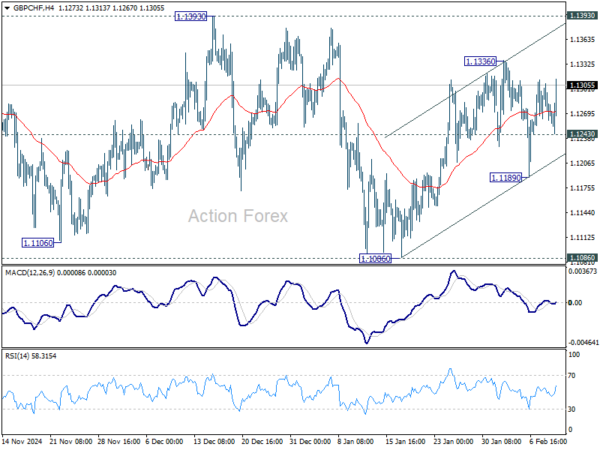Cautious Trading Prevails as Markets Await Retaliations to US Tariffs
Trading is relatively subdued today across global markets as investors assess the fallout from the US steel and aluminum tariffs announced by President Donald Trump. Major European equity indexes are treading water, while US futures are slightly in the red. Treasury yields are recovering, though it remains too early to confirm a reversal of the recent downtrend. Meanwhile, Gold is having a notable pullback after an initial rejection at the key 3000 psychological level, suggesting profit-taking among traders.
European Commission President Ursula von der Leyen responded to the US move, stating that the EU will not let the “unjustified tariffs” go unanswered and pledged “firm and proportionate countermeasures” to protect European interests. However, no specific retaliatory measures have been outlined yet. Canada’s Prime Minister Justin Trudeau also criticized the tariffs as “unacceptable,” reinforcing that “Canadians will stand up strongly and firmly if we need to.” Markets remain cautious, awaiting concrete details on countermeasures from key US trade partners.
At a global level, IMF Managing Director Kristalina Georgieva addressed the uncertainty surrounding the tariff situation at the World Government Summit in Dubai, stating that it remains an “evolving story” and that it is “too early to say” what the full economic impact might be. This reinforces the broader market sentiment that investors are hesitant to make directional bets until more clarity emerges on trade retaliation and its economic implications.
In the forex market, Dollar has turned mixed, losing some momentum against Euro and Sterling while firming up slightly against Yen and Swiss Franc. Market focus is now shifting to Fed Chair Jerome Powell’s Congressional testimony, with investors looking for signals on how long Fed’s current policy pause might last. Powell is also expected to be questioned on the impact of tariffs. Though it is unlikely he will provide any clear forward guidance on both fronts.
GBP/CHF could see increased volatility this week as the UK prepares to release Q4 GDP data and Switzerland reports January CPI figures. The cross has been struggling in range trading since last September. Today’s bounce suggests that rise from 1.1086 is ready to resume through 1.1336 towards 1.1393. Strong resistance could be seen there to limit upside to start another falling leg. Meanwhile, break of 1.1243 should bring deeper fall through 1.1189 towards 1.1086.
In Europe, at the time of writing, FTSE is flat. DAX is up 0.27%. CAC is up 0.16%. UK 10-year yield is up 0.0317 at 4.493. Germany 10-year yield is up 0.051 at 2.416. Earlier in Asia, Japan was on holiday. Hong Kong HSI fell -1.06%. China Shanghai SSE fell -0.12%. Singapore Strait Times fell -0.37%.
US NFIB small business optimism drops as uncertainty rises, hiring challenges persist
NFIB Small Business Optimism Index declined to 102.8 in January, missing market expectations of 104.6 and falling from December’s reading of 105.1.
The decline reflects growing concerns among small business owners, as seven out of the 10 components of the index deteriorated, while only one improved. Additionally, the Uncertainty Index surged 14 points to 100, marking the third-highest reading in its history after two months of easing uncertainty.
NFIB Chief Economist Bill Dunkelberg highlighted while there is still “optimism regarding future business conditions,” uncertainty is climbing. One major concern remains the persistent “hiring challenges,” as businesses struggle to find qualified workers to fill vacancies. Capital investment plans are also being reconsidered.
Australia’s Westpac consumer sentiment ticks up, RBA to start cutting this month
Australia’s Westpac Consumer Sentiment Index rose slightly by 0.1% mom to 92.2 in February. While consumer mood improved significantly in the second half of 2024, the past three months have shown stagnation.
Westpac noted that financial pressures on households persist and a more uncertain global economic climate has also played a role in dampening optimism.
RBA is likely to begin policy easing at its next meeting on February 17–18. Westpac highlighted that recent economic data on core inflation, wage growth, and household consumption indicate that inflation is “returning to target faster” than previously expected.
These factors provide RBA with the confidence to initiate a 25bps rate cut this month, marking the first step in what is expected to be a “moderate” easing cycle through 2025.
Australian NAB business confidence rebounds to 4, but conditions remain weak
Australia’s NAB Business Confidence index made a strong recovery in January, rising from -2 to 4 and returning to positive territory. However,…
Read More: Cautious Trading Prevails as Markets Await Retaliations to US Tariffs


